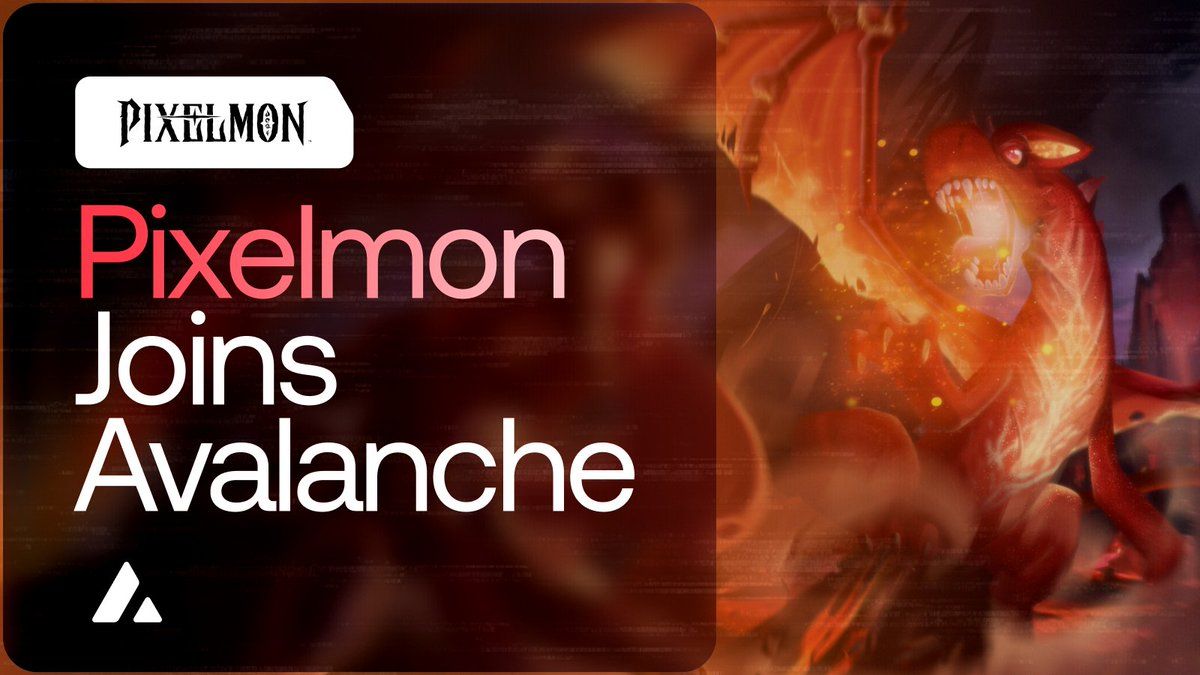Metaverse trends are becoming increasingly popular nowadays. With the Metaverse market expected to grow to $800 billion by 2028, we are witnessing a massive revolution that will determine the future of our digital interactions. This exciting era of technological innovation has already begun to improve several industries, such as healthcare and education.
Key Points
- The article aims to provide an overview of the present state of the Metaverse and its current and upcoming trends for the year 2023.
- The Metaverse is already growing with the participation of multiple high-end brands such as Nike, Gucci, Samsung, Louis Vuitton, and more.
- The Metaverse is making huge waves in gaming, healthcare, fashion, and education.
- VR and AR games, virtual galleries, art exhibitions, real estate, social networking spaces, etc., are the present trends for the Metaverse.
- Enhanced avatar technology, art galleries, web 3.0, mixed realities, and more are expected to become trends of the Metaverse in 2023.
The current state of the Metaverse can be analyzed by its massive user base spread out across platforms such as Roblox, Sandbox, Decentraland, Otherside, and more. There are currently around 400 million Metaverse users worldwide.
However, since we are still in the early stages of development, there is a long way to go before we can fully capitalize on the exciting possibilities these technologies provide. Companies are currently focusing on creating immersive hardware, creating 3D development tools, establishing virtual economies, and much more.
Let’s dive into the current trends of the Metaverse and what modern developments are happening right now!
Large Brands and Businesses are entering the Metaverse
One of the most significant advantages of the Metaverse is its ability to establish virtual economies using digital currencies. Users can now purchase a platform’s native crypto through different exchanges and utilize it to obtain digital assets online.
This creates an exciting opportunity for businesses, which is why they have begun setting up virtual stores within different Metaverse platforms to connect with their customers there. Some brands have also created their own “virtual worlds” such as Nike with “Nikeland” and Gucci’s “Gucci Garden”. These virtual worlds provide an added layer of interactivity as customers can play various games and enjoy personalized experiences, apart from purchasing digital assets online.
Large financial institutions such as JPMorgan and HBSC have also started purchasing digital land and creating virtual spaces to interact with their customers. Each company has its own entry strategy, for example, JPMorgan has set up its lounges in Decentraland whereas HSBC is establishing its virtual presence on the Sandbox.
Microsoft’s $69 Billion Acquisition Bid for Activision Blizzard
Apart from creating immersive mixed reality headsets, Microsoft has also expressed interest in acquiring Activision Blizzard in one of the most significant gaming and Metaverse space transactions.
This would give Microsoft access to over 400 million active gamers and a massive library of prebuilt video games, equipping them with all the tools necessary to begin creating immersive experiences for gamers.
While many were excited about the bid, it seems that Microsoft will still have some hurdles to get through as the Federal Trade Commission (FTC) filed a lawsuit on December 8th, 2022, to block the deal with concerns around Microsoft establishing a monopoly within the video games industry.
Increased Focus on Metaverse Technologies
Facebook’s announcement about rebranding itself to Meta towards the end of 2021 sparked tremendous interest in the Metaverse and its immense potential. The company has also released VR headsets such as the MetaQuest2, one of the most popular headsets to date. The Quest store has generated over $1.5 billion in revenue, and we expect to see many exciting things from them in 2023.
Widely known for its Graphical Processing Units, NVIDIA has set up the “Omniverse” that allows 3D developers to utilize existing predesigned libraries to collaborate with each other and create stunning virtual elements.
Other tech giants such as Google and Apple are also working on creating immersive hardware to allow their customers to have incredible virtual experiences.
Luxury Brands in Metaverse
As mentioned above, major companies have begun expanding their virtual presence to capitalize on the emerging market niches that technologies have created. One of the most significant events for luxury clothing in the Metaverse was the first-ever Metaverse Fashion Week, which took place in Decentraland throughout March 2022.
With immersive Metaverse technologies such as AR, customers can try on different clothing items virtually before making purchase decisions. This adds a new layer of interactivity as users can now utilize their avatars to walk around virtual malls and shop from their favorite brands from their homes.
Real Estate Industry in the Metaverse
Virtual land prices have increased by an estimated 879% since 2019. The rise of digital assets has helped many early investors make money, and the real estate industry has shown tons of potential. According to a McKinsey analysis, the Metaverse real estate market is expected to reach $5 Trillion by 2030.
With land drops from Metaverses such as Otherside being sold out in minutes, users are willing to pay thousands of dollars in “gas fees” to obtain these parcels before they fall onto the secondary market. One of the largest land purchases was around $4.3 million by Republic Realm within the Sandbox.
Art, Entertainment, and Interactive Experiences
Many Metaverse users have begun displaying digital art and NFT collections within the virtual realm. Individuals can do this by either purchasing their own piece of land to display their art or renting a space within another virtual gallery.
Popular celebrities such as Justin Bieber, Marshmello, Lil Nas X, and Foo Fighters have already performed within the Metaverse and individuals were able to experience these concerts from the comfort of their own homes!
Disney has also announced their goal of creating a virtual “Disneyland” where users can get on rollercoaster rides, meet their favorite Disney characters, and much more.
Reimagined Workspaces
At the peak of the epidemic, when working remotely became the only choice, digital office technologies already existed and were used, but the Metaverse presents new possibilities. Mesh for Microsoft Teams and Gather are two examples of this. Both tools let consumers customize their characters and enable organizations to build interactive environments inside their corresponding web-dependent platforms, enabling people working from various physical places to team up and celebrate shared experiences in the digital world.
There are also beginning to be other business alternatives including using applications on the marketplace. Accenture recently used its Metaverse to enroll new workers from Australia and New Zealand, while Deloitte created a digital trip of its London office to aid in recruiting attempts and offer potential employees a taste of how it feels to work there. Meta has also launched “Horizon Workrooms” to allow colleagues to collaborate remotely using VR.
The New World of Marketing and Retail
The Metaverse space has created numerous opportunities for businesses to create digital assets that can bring in new revenue streams. Businesses such as Gucci and Nike are also designing accessories for avatars that can be purchased using cryptocurrencies. The direct-to-characters or avatar market is growing significantly as many Metaverse users are looking for creative ways to showcase their personalities online.
Transforming the Field of Education and Training
Metaverse technologies have enabled users to completely transform the way individuals learn and retain knowledge. Imagine studying the solar system while looking at a 3D model of the galaxy within virtual reality or the ability to spin planets around to view them from different angles – all of this is possible using extended reality.
These technologies can also create interactive training sessions; for example, a company can conduct sales training by creating immersive sales experiences with “virtual prospective buyers.”
Medical schools can also utilize 3D scans to help students retain more information through interactive sessions.
Fidelity Investments has also created a space within Decentraland to provide Metaverse users access to investment-based course material. Users may discover more about investing by touring the building and earning rewards.
Below are the trends that you can expect to see in the Metaverse in 2023.
More Realistic Avatar Technology
We’ve come a long way from 2D avatars, and as we come closer to establishing complete virtual immersion, we can expect to see much more sophisticated avatars in 2023. Companies such as Meta have been working on creating photorealistic avatars for quite some time, however, there is still significant room for improvement.
With better rendering of physical characters and more customization options, we may expect to see realistic humans walking around the Metaverse in 2023. We’d also like to see the ability for avatars to move across different Metaverse platforms freely without being bound to a single platform.
Decentralization and Web 3.0
Decentralization, in the opinion of some, will be crucial in determining how the Metaverse develops in the future. Decentralized innovations like blockchain networks and spread ledgers will bring in a new network free from the power of large corporations. This would imply that the ability to make decisions will fall to the hands of the community instead of one single entity.
Distributed autonomous organizations (DAOs), which will rule over decentralized Metaverse networks like The Sandbox and Decentraland, are the cornerstone of this future. The selling of ownership rights will be followed by the development of virtual democracies and consumer-owned groups, giving people a say in the administration of the company building the virtual world. However, centralized Metaverses such as Horizon Worlds will still be highly relevant due to their exciting features. In 2023, this clash of virtual cultures will undoubtedly advance in intriguing ways.
AR and VR
As indicated by current trends, there are a lot of exciting developments in store for the Metaverse in 2023.
-
- AR will play a massive role in the entertainment industry, and large brands such as Disney have already released short AR films that have been massive successes.
- All of Apple’s current devices support AR, and the company is also reportedly working on an AR headset that is set to be released in 2023.
- Digital gaming relies heavily on three-dimensional technology, augmented and virtual reality components, and sound systems. These innovations have experienced phenomenal expansion as the Metaverse has grown, increasing their value and market importance.
- Companies are working on utilizing haptic feedback to allow users to physically “feel” objects in the virtual realm. Although we are currently limited to experiencing haptic feedback with VR controllers, there have been reports of Meta working on robotic skin.
-
- The latest releases of Meta’s wildly popular Quest VR headgear will be available in 2023, along with brand-new Virtual Reality/Augmented Reality/Mixed Reality headgear from companies like Apple, Google, and Microsoft, all of which are essential to Meta’s idea of the “ultimate tier” of digital networks.
- Tech businesses are working on creating haptic bodysuits, 3D treadmills, and AR contact lenses, which means that we can expect much more realistic experiences in the coming years.

Digital Workplaces
The Metaverse can enable businesses to shift their operations to a virtual realm. Exciting technologies such as Microsoft Azure enable users to create “virtual twins” of workers and workplaces to allow for an interactive space to collaborate, share ideas and work from the comfort of their homes. This can help reduce overhead costs such as rent, utilities, and more.
For example, offices can utilize Horizon Workrooms to conduct virtual meetings, brainstorm ideas, and much more. The concept of remote-based work has become increasingly popular in recent years, and the Metaverse offers an exciting way to ensure maximum productivity with lower costs.
These technologies can be used for training, handling supply chain issues, helping with hiring individuals, and other administrative procedures. For example, Accenture has built a virtual workspace where employees can perform HR tasks within the virtual realm.
This allows employees to work from any remote location as long as they have a good internet connection.
Metaverse Marketing
Marketing within the Metaverse realm adopts an entirely different approach than traditional marketing. It is also important to note that as the technologies evolve, marketing strategies must constantly adapt to keep up with the rising potential of the Metaverse.
For example, many individuals have purchased land and have set up billboards to rent out within the virtual realm. Other businesses have set up virtual stores that users can walk into using their avatars and browse digital and physical collections.
With rising interest in finding different ways to connect with customers, businesses can significantly benefit from setting up interactive shopping experiences instead of simple websites. For example, Nike adopts a game-based marketing approach where in Nikeland, users can play various sports-based games while also visiting the virtual store to buy accessories for their avatars or physical life.
Early movers will have a significant advantage as they can test out and create compelling experiences to drive more traffic to their virtual stores.
After carefully analyzing the current state of the Metaverse and the upcoming trends, we predict that the year 2023 will contain a lot of innovations within the Metaverse space. Despite recent crypto crashes, the potential of earning virtually through different platforms and digital assets is too immense to ignore. Apple’s AR/MR headset might be released as early as January 2023, and its large user base could easily increase massive AR adoption worldwide. There are several VR headsets scheduled to come out next year as well, and with the rising interest around haptic feedback and AR contact lenses, we’re very excited about what the upcoming year has to offer.
As Metaverse technologies expand to numerous industries, one area that we believe may experience significant growth is digital workspaces. With the option to reduce overheads and completely customize the environment, working remotely will be more immersive than ever before.
FAQs
- What are the recent Metaverse trends to look out for in 2023?
In 2023, it is predicted that there will be an emphasis on realistic avatars, immersive experiences using mixed reality, 3D development software, innovative immersive hardware, and much more.
- How is the Metaverse benefiting Education?
By utilizing immersive technologies such as VR and AR, schools can focus on creating 3D lectures that can help students visualize and retain information easily.
- What is the current state of the Metaverse?
There is still a long way to go before we can fully harness the potential of the Metaverse. We are currently in the midst of creating immersive technologies, creating 3D environments, exploring decentralization, establishing creator virtual economies, and more.
References
How will the Metaverse affect the future of work? | TechTarget
The State of the Metaverse in 2022 (crypto.com)
The State of the Metaverse 2022 | Challenges & Opportunities (influencermarketinghub.com)
What you need to know about the state of the Metaverse today | VentureBeat
Best Metaverse Crypto Coins for 2022 – List of the Top 15 Metaverse Coins (business2community.com)
Metaverse in e-commerce market is rapidly growing | by Cappasity | Cappasity Blog | Medium
Top 18 Metaverse Trends in 2022-2025 (wear-studio.com)
Metaverse Outlook and the Current Trends | GLG (glginsights.com)
Metaverse: 5 Emerging Industry Trends in 2022 | Hive Life Magazine
The Top 5 Metaverse Trends In 2023 | Bernard Marr
Top 10 Metaverse Trends to Lookout for in 2023 and Beyond (analyticsinsight.net)
Read More: metaverseinsider.tech










 Bitcoin
Bitcoin  Ethereum
Ethereum  Tether
Tether  XRP
XRP  Solana
Solana  USDC
USDC  Dogecoin
Dogecoin  Cardano
Cardano  TRON
TRON  Lido Staked Ether
Lido Staked Ether  Wrapped Bitcoin
Wrapped Bitcoin  Sui
Sui  Wrapped stETH
Wrapped stETH  Chainlink
Chainlink  Avalanche
Avalanche  Stellar
Stellar  Hyperliquid
Hyperliquid  Shiba Inu
Shiba Inu  Hedera
Hedera  LEO Token
LEO Token  Bitcoin Cash
Bitcoin Cash  Toncoin
Toncoin  Litecoin
Litecoin  Polkadot
Polkadot  USDS
USDS  WETH
WETH  Monero
Monero  Bitget Token
Bitget Token  Binance Bridged USDT (BNB Smart Chain)
Binance Bridged USDT (BNB Smart Chain)  Wrapped eETH
Wrapped eETH  Pepe
Pepe  Pi Network
Pi Network  Ethena USDe
Ethena USDe  Coinbase Wrapped BTC
Coinbase Wrapped BTC  WhiteBIT Coin
WhiteBIT Coin  Bittensor
Bittensor  Dai
Dai  Uniswap
Uniswap  Aave
Aave  NEAR Protocol
NEAR Protocol  Aptos
Aptos  OKB
OKB  Jito Staked SOL
Jito Staked SOL  Cronos
Cronos  Ondo
Ondo  BlackRock USD Institutional Digital Liquidity Fund
BlackRock USD Institutional Digital Liquidity Fund  Tokenize Xchange
Tokenize Xchange  Internet Computer
Internet Computer